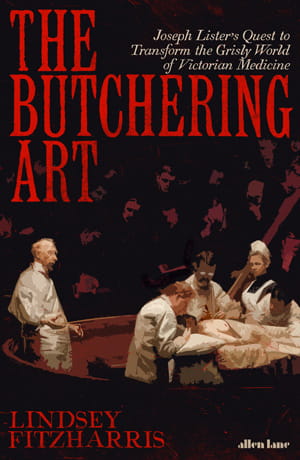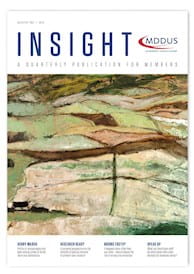
Joseph Lister’s Quest to Transform the Grisly World of Victorian Medicine
By Lindsey Fitzharris
Allen Lane, hardcover, £11.89, 2017
Review by Dr Greg Dollman, medical adviser, MDDUS
IN one of his regular letters to his father, Joseph Lister wrote: “thou canst hardly conceive what a high degree of enjoyment I am from day to day experiencing in this bloody and butchering department of the healing artist”. Lindsey Fitzharris’ The Butchering Art allows a glimpse into the personal and professional life of one of the most influential figures in modern medicine. And her description of “the bloody” and “the butchering” provided me with possibly the same high degree of enjoyment that Lister derived from his scientific art.
Fitzharris chronicles Lister’s journey from an ambivalent medical student (a Quaker, he had considered a life in the ministry) to his appointment as Queen Victoria’s personal surgeon (Lister once quipped: “I’m the only man who has ever stuck a knife into the Queen”) and the multiple honours that were bestowed on him in later years, including a knighthood and presidency of the Royal Society. In between, she describes Lister’s unwavering pursuit (a different sort of ministry, really) of antisepsis, from London to Edinburgh (and around the world) and back again.
The subtitle of this history is Joseph Lister’s Quest to Transform the Grisly World of Victorian Medicine. And grisly it certainly was. The book describes the squalor of the hospitals (surgery may have been seen as lifesaving but hospitals were considered places of death, usually for the poor), brutal and rapid surgical procedures without anaesthesia (Fitzharris relays a possibly apocryphal tale of a surgeon who sliced off his assistant’s fingers during an leg amputation), and the putrid, sawdust covered places of surgery that really were ‘theatres’ (open to the public where matters of life and death were considered entertainment).
Apart from the story of medicine, The Butchering Art also provides a fascinating history of life in Victorian Britain, with vignettes about people (including Harvey Leach, “the shortest man in the world” who joined PT Barnum’s Circus), places (such as Crystal Palace and the Old Bailey) and processes (decorum and education).
While Fitzharris’ book is a delight to read, I was disappointed by the seeming overly optimistic portrayal of Lister. The book glosses over the depression and neurosis that appears to have affected this great man. The history only scratches the surface of this fascinating era of medicine, and it left me longing for more.
This page was correct at the time of publication. Any guidance is intended as general guidance for members only. If you are a member and need specific advice relating to your own circumstances, please contact one of our advisers.
Read more from this issue of Insight

Save this article
Save this article to a list of favourite articles which members can access in their account.
Save to library